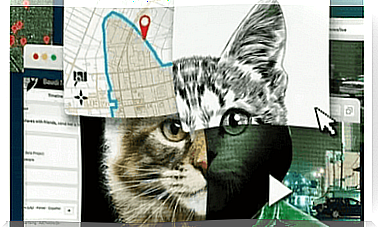The Five Minds Of The Future

If we ask you to think of an intelligent person, how do you imagine him? Similar to a scientist, like Einstein or to an artist, like Picasso? Would you think of a statesman and politician, like Churchill, or a spiritual guide like Pope Francis? For years, science has assumed that only the “Einsteins” were truly intelligent, putting the ability to think logically and mathematically at the top of the intelligence scale. Until an American son of World War II refugees named Howard Gardner (1943) began to question this theory and wanted to expand the frontiers of intelligence. This psychologist has proposed a description of the five types of mind that the world needs to face the challenges that the future will present us.
From admirer to critic
Gardner was a follower of Piaget and his conception of logical-mathematical intelligence. At a certain point, however, the psychologist, who was also a musician, began to wonder if even that of artists could not be considered intelligence. During the first half of the twentieth century, in fact, psychology still strongly maintained that intelligence was a unique and unalterable ability, inherited from our parents.
Fortunately, this view changed dramatically in the 1980s when Gardner began researching cognitive development. From that turning point, it was understood that intelligence is actually a set of multiple and different abilities , which are independent of each other. For this reason, being more inclined in one area does not indicate that one should be in another, and vice versa. This is the theory of Multiple Intelligences .
The five minds of the future
No longer as a psychologist, but as a philosopher, Gardner also reflected on the changes to which humanity is subjected, due to scientific-technological developments and globalization. According to him, in order to be able to overcome the obstacles that today’s complex world places on us, we will need to develop five types of mind.
1. The disciplined mind. It has two main characteristics: it accumulates knowledge in fundamental areas such as language, history, science, mathematics etc; and manages to dominate the different way of thinking according to the disciplines, for example thinking like a scientist or an artist.
2. The synthetic mind. Once a disciplined mind is attained (through training), the synthetic mind is able to distinguish important and unnecessary information, so as to link ideas from different sources together, creating a coherent and meaningful structure, which it has something more than the mere sum of its parts.
3. The creative mind. It is the mind of the adventurer who, based on what he has learned thanks to the discipline and the ability to synthesize, takes risks and goes beyond what he knows, questioning it to create new theories, products and ideas.
4. The respectful mind. It is capable of accepting and welcoming in a positive way the differences in the beliefs and customs of different cultures, provided that these do not represent a threat to the common good. Those with a respectful mind are able to work in harmony with people of different cultures.
5. The ethical mind. She is governed by moral principles and wonders how she would feel if others behaved the way she does. To develop this type of mind, family, institutional education and that of other figures are essential, who become models from which to draw inspiration for assuming a positive attitude.
What, then, is the relationship between multiple intelligences and the five minds of the future? It could be argued that intelligences function as different “programs” that operate in the “computer” of our mind, while the five minds are predispositions that, according to Gardner, we must be able to develop in order to successfully face the challenges of the future. In this way, the five minds will feed on the different types of intelligence.
And you, what do you think? Do you have the five minds needed for the future?
Image courtesy of Nejron Photo








